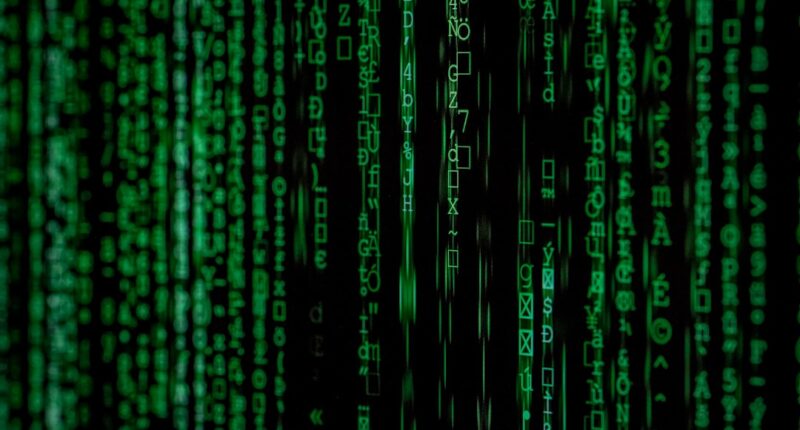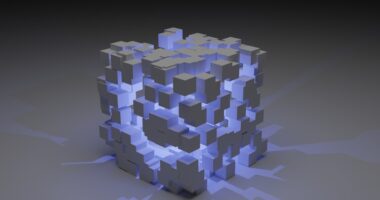Non-fungible tokens (NFTs) are digital assets that represent ownership or authenticity of unique items or content using blockchain technology. Unlike fungible cryptocurrencies such as Bitcoin or Ethereum, NFTs are non-interchangeable, with each token being unique. This uniqueness is the source of their value and has led to increased interest and investment in the NFT market.
NFTs can represent various digital assets, including artwork, music, videos, virtual real estate, and social media content. Each NFT contains metadata providing information about the asset, such as creator, creation date, and associated rights or royalties. This metadata is stored on a blockchain, a decentralized digital ledger that records transactions across a computer network, ensuring verifiable ownership and provenance.
The concept of NFTs has gained popularity in recent years, with creators adopting the technology as a new method to monetize and distribute their work. The ability to create scarcity and establish ownership of digital assets has created new opportunities for creators and collectors, resulting in a surge in the NFT market and discussions about the future of digital ownership.
The Rise of NFTs in the Art World
Provenance: The Key to Authenticity
Traditional digital art has struggled with issues of authenticity and ownership, leading to problems with copyright infringement and unauthorized reproduction. NFTs have solved this problem by providing a secure and transparent way to verify the originality and ownership of digital artwork, giving artists and collectors peace of mind when buying and selling NFT art.
A Shift in Art Valuation and Perception
The rise of NFTs in the art world has led to a shift in how art is valued and perceived. With NFTs, artists have the ability to retain ownership and control over their work, as well as earn royalties on future sales. This has empowered artists to take more control over their careers and has challenged traditional notions of art ownership and distribution.
Unleashing Innovation and Creativity
As a result, NFTs have sparked a wave of innovation and creativity in the art world, with artists exploring new mediums and styles to capitalize on the growing demand for digital art.
NFTs and Digital Ownership

NFTs have revolutionized the concept of digital ownership by providing a secure and transparent way to buy, sell, and trade unique digital assets. In the past, digital content was easily replicable and could be shared or distributed without any clear ownership or provenance. NFTs have changed this by allowing creators to mint their work as unique tokens on the blockchain, providing a verifiable record of ownership and authenticity.
The concept of digital ownership has become increasingly important as more aspects of our lives move online. From virtual real estate to digital collectibles, NFTs have opened up new possibilities for owning and trading digital assets in a way that was previously impossible. This has led to a surge in interest from both creators and collectors who see NFTs as a way to establish value and scarcity in the digital realm.
NFTs have also raised questions about the future of copyright and intellectual property rights in the digital age. As more creators embrace NFTs as a way to monetize their work, there is a growing need for clear regulations and standards around digital ownership and royalties. This has sparked conversations about how NFTs can be used to protect creators’ rights and ensure fair compensation for their work in an increasingly digital world.
NFT Jobs: Opportunities in the NFT Industry
| Job Title | Skills Required | Salary Range |
|---|---|---|
| NFT Developer | Solidity, Web3, Smart Contracts | 80,000 – 150,000 |
| NFT Marketing Specialist | Digital Marketing, NFT Promotion | 60,000 – 100,000 |
| NFT Community Manager | Social Media Management, Community Engagement | 50,000 – 80,000 |
| NFT Artist | Digital Art, NFT Creation | 40,000 – 100,000 |
The rise of NFTs has created a range of new job opportunities in the blockchain and digital art industries. As the demand for NFTs continues to grow, so too does the need for professionals with expertise in areas such as blockchain development, digital marketing, and art curation. Companies specializing in NFTs are seeking individuals who can help them navigate this emerging market and capitalize on its potential.
One area that has seen significant growth is blockchain development, with companies looking for skilled developers who can create and maintain the infrastructure needed to support NFT transactions. This includes expertise in smart contracts, decentralized finance (DeFi), and other blockchain technologies that underpin the NFT ecosystem. Additionally, there is a growing demand for professionals with experience in digital marketing and social media management, as companies seek to promote and sell NFTs to a wider audience.
The rise of NFTs has also created opportunities for artists and creators to monetize their work in new ways. With the ability to mint their art as NFTs, artists can earn royalties on future sales and establish a direct relationship with collectors. This has led to a surge in demand for artists who can create digital artwork specifically for the NFT market, as well as curators who can help collectors navigate this new landscape.
NFT Artists: How NFTs are Changing the Art Market
NFTs have had a profound impact on the art market by providing artists with new opportunities to monetize their work and reach a global audience. With NFTs, artists can create unique digital assets that can be bought, sold, and traded on the blockchain, providing a new revenue stream that was previously unavailable for digital art. This has empowered artists to take more control over their careers and has challenged traditional notions of art ownership and distribution.
One of the key ways that NFTs are changing the art market is by creating a direct relationship between artists and collectors. With traditional art sales, artists often have limited visibility into who is buying their work or how it is being used. NFTs solve this problem by providing a transparent record of ownership and allowing artists to earn royalties on future sales.
This has led to a shift in power dynamics within the art world, with artists having more control over their work and collectors having greater confidence in the authenticity of their purchases. NFTs have also opened up new possibilities for artists to experiment with different mediums and styles. With the ability to create unique digital assets, artists are no longer limited by traditional constraints such as canvas size or material costs.
This has led to a wave of innovation in digital art, with artists exploring new ways to create and distribute their work in response to the growing demand for NFTs.
NFT News: The Latest Developments in the NFT Space

The Integration of NFTs into Social Media
One of the most significant recent developments is the integration of NFTs into social media platforms such as Twitter and Instagram. This has made it easier for creators to mint their work as NFTs directly from these platforms, opening up new opportunities for artists to reach a wider audience and monetize their content.
Fractionalized Ownership and Beyond
Another key trend in the NFT space is the rise of fractionalized ownership, which allows multiple individuals to own shares of an NFT. This has made it easier for collectors to invest in high-value assets that may have been out of reach otherwise, as well as providing new opportunities for creators to sell their work to a larger pool of investors.
Expanding Use Cases for NFTs
In addition to these developments, there has been increased interest in using NFTs for purposes beyond art and collectibles. This includes applications in gaming, virtual real estate, and even identity verification. As the technology continues to mature, it is likely that we will see even more diverse use cases for NFTs emerge in the near future.
The Future of NFTs: Potential Impact on Digital Ownership
The future of NFTs holds significant potential for reshaping how we think about digital ownership. As more aspects of our lives move online, there is an increasing need for secure and transparent ways to establish ownership and provenance of digital assets. NFTs provide a solution to this problem by leveraging blockchain technology to create unique, verifiable records of ownership that can be easily traced back to their original creators.
One potential impact of NFTs on digital ownership is the democratization of access to valuable assets. With fractionalized ownership becoming more prevalent, individuals who may not have had the means to invest in high-value assets such as artwork or real estate now have the opportunity to own shares of these assets through NFTs. This has the potential to open up new investment opportunities for a wider range of individuals and could lead to greater financial inclusion in the long term.
Another potential impact of NFTs on digital ownership is the transformation of how we think about intellectual property rights. As more creators embrace NFTs as a way to monetize their work, there is a growing need for clear regulations and standards around digital ownership and royalties. This has sparked conversations about how NFTs can be used to protect creators’ rights and ensure fair compensation for their work in an increasingly digital world.
In conclusion, NFTs have had a profound impact on various industries such as art, gaming, collectibles, and even identity verification. The rise of NFTs has created new opportunities for artists, collectors, developers, and entrepreneurs alike. As the technology continues to evolve, it is likely that we will see even more diverse use cases for NFTs emerge in the near future, reshaping how we think about digital ownership and creating new possibilities for creators and collectors alike.
If you’re interested in learning more about NFTs and how they are impacting the job market, check out this article on NFT Jobs. The article discusses the growing demand for professionals with expertise in non-fungible tokens and how the NFT industry is creating new job opportunities. It also provides insights into the skills and knowledge that are in high demand within the NFT space.
FAQs
What is NFT?
NFT stands for non-fungible token, which is a digital asset that represents ownership or proof of authenticity of a unique item or piece of content, such as artwork, music, videos, and other digital files.
How do NFTs work?
NFTs are built using blockchain technology, which ensures the uniqueness and ownership of the digital asset. Each NFT is stored on a blockchain and has a unique digital signature that cannot be replicated, making it different from cryptocurrencies like Bitcoin or Ethereum, which are fungible and interchangeable.
What can be turned into an NFT?
Almost any digital file can be turned into an NFT, including artwork, music, videos, tweets, virtual real estate, and even virtual goods in video games. The key is that the digital file must be unique and have value to someone who is willing to purchase it.
How are NFTs bought and sold?
NFTs are typically bought and sold on online marketplaces that specialize in digital assets, such as OpenSea, Rarible, and Foundation. Users can use cryptocurrency to purchase NFTs, and the ownership of the NFT is then transferred to the buyer’s digital wallet.
What are the benefits of NFTs?
NFTs provide a way for creators to monetize their digital content and for buyers to own and trade unique digital assets. They also offer a way to prove the authenticity and ownership of digital items, which can be valuable in the digital age.
Are there any risks associated with NFTs?
As with any emerging technology, there are risks associated with NFTs, including potential copyright issues, market volatility, and the environmental impact of blockchain technology. Additionally, there is the risk of fraud and scams in the NFT market.





